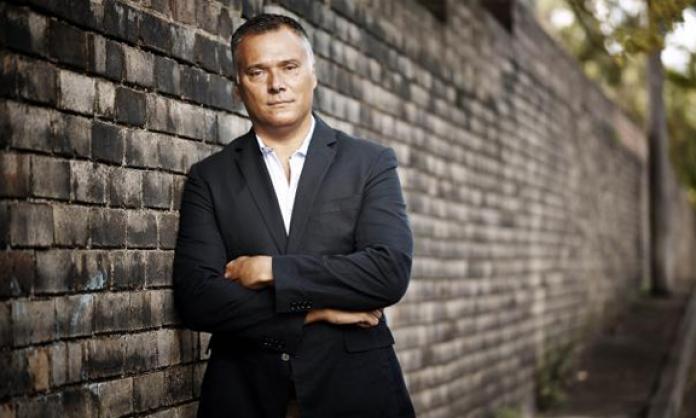The responses to the Sydney Daily Telegraph’s “discovery” that universities are acknowledging one or two facts about the British invasion of this land have revealed something else: who gets to speak for and about Aboriginal people.
In the popular media, Indigenous X founder Luke Pearson writes: “Every time these stories occur … we can still be confident that Indigenous voices will not be invited onto most shows to discuss these issues rationally. Not only will Indigenous voices be largely omitted, but the most racist commentators available will be invited to talk on many shows instead”.
But not all Aboriginal voices are silenced or sidelined. Stan Grant, currently in discussions with the Liberal Party about running for parliament, has no such trouble. The fact that he is the Indigenous affairs editor of the liberal Guardian and managing director of National Indigenous Television can’t hurt. But that raises the same question: why him?
Who better than an Indigenous person to wash away some of the sins of Australian history.
To ask who speaks for “Aboriginal Australia” in such forums is to ask who is acceptable to Australian capitalism.
Much has been made of Stan Grant’s Martin Luther King-like qualities of late – exactly the comparison made with arguably Australia’s most influential Black voice, that of Noel Pearson, after his Whitlam funeral oration. The comparison is undeserved in both cases.
But the similarities between Grant and Pearson are numerous. Not an activist? Check. Doesn’t speak at rallies? Check. Prefaces every criticism with how great Australia really is? Check.
Look at Grant’s article in response to the Telegraph’s confected outrage about the use of the word “invasion”. Much of it is an attack on “orthodoxy or group think” in order to promote the notion that this is “a battle of ideas in an open democracy founded on free speech”.
Amy McQuire wrote an article on Grant for New Matilda in February, “The viral rise of Stan Grant: why diplomacy won’t be enough for our people”. With her usual incisiveness, she wrote of the “many blackfellas who are constantly beaten down and belittled, who unlike Grant, are not celebrated by white Australia, but instead demonised for their truth and advocacy. I wonder if a speech from people like Pat O’Shane, or Gary Foley, or Tiga Bayles, would ever provoke the same reaction?”
McQuire’s phrase, “acknowledging the history but not challenging it”, sums up Grant’s appeal to those who rule Australia. The day after Invasion Day this year, Grant wrote:
“But we can also come together around a shared love of country and a future that makes good on the great fortune and blessings we enjoy. We live in a place prosperous and secure. When we look at the war-ravaged lives of those in Syria or Iraq or countries torn apart like Somalia or Ukraine … we realise, frankly, how lucky we are.”
Even in an article lamenting the suicide of a 10-year-old Aboriginal girl, Grant managed to include, “This is a mighty country and we have much of which to be proud”.
Second, Grant attempts to play a calming role. Unlike “those who want to shout from the extremes on all sides”, he has “grown beyond the angry student of my youth … I seek equilibrium and balance”. This helps to normalise the idea that there is some common ground between racists and anti-racists that only “extremists” can’t recognise. Hence Grant says that Andrew Bolt “is someone I know and respect and we have vigorous and generous conversations”.
Third, who better than an Indigenous person to wash away some of the sins of Australian history – not by denying them but by presenting them as some sort of mistake. Thus in his book, Talking to my country, Grant writes:
“It need not have been this way. The birth of Australia was meant to be so different. For a brief moment there was hope. Captain Arthur Phillip founded a penal colony with instructions from the crown to protect the lives and livelihoods of Aboriginal people and forge friendly relations with the natives … Here’s what we could have been. In this moment there was a glimpse of a better Australia, and we failed.”
Actually, it did need to be this way. The project of invading this country to establish an outpost of Britain’s capitalist empire required the racism of terra nullius to justify stealing the land, the genocide of Indigenous peoples, the exploitation of Aboriginal (and non-Aboriginal) labour and the continuous demonisation of Aboriginal peoples as the lazy or immoral architects of their own misfortune.
Finally, there is the meaningless “we”, beloved of all who attempt to gloss over the class divide. It is not “we” who made the decisions or benefited from the military invasion of Aboriginal communities under the Northern Territory Intervention, or the forced closure of remote Aboriginal communities currently proposed by governments.
Capitalists, largely but not only in the form of mining companies, are the beneficiaries – just as they are of attacks on the working class in general such as health cutbacks. On the other side, throughout the history of Indigenous resistance, trade unionists have been the best supporters of Aboriginal struggles.
And as generations of Indigenous fighters have shown from invasion to today, there are other avenues for Aboriginal people to fight to be heard and get support than to become the next Noel Pearson or Stan Grant.





